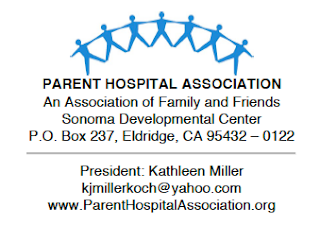"This must end":
Disability Policy & Mental Health Reform NOW
VOR joins the chorus of heartfelt sympathy expressed for the families and friends of the victims of the Sandy Hook tragedy.With so much “politics” (you name the issue) dividing our country, VOR prays that this tragedy finally unites parents, families, advocates, professionals, organizations, and policymakers in a way never before experienced.
There can be no real justice for the senseless killings in Connecticut and elsewhere, but uniting as a nation will get as close to healing as possible and will help prevent such senseless tragedy in the future.
As the President stated,
“’We can't tolerate this anymore,’ he added. ‘These tragedies must end, and to end them, we must change. We will be told that the causes of such violence are complex, and it is true. No single law, no set of laws can eliminate evil from the world or prevent every senseless act of violence in our society. But that can't be an excuse for inaction. Surely we can do better than this.’”
“‘Our mental health system has completely failed individuals with severe mental illness and their communities,’ said Doris A. Fuller, [TAC] executive director. ‘We have emptied the nation's hospitals, gutted state and local mental health programs, and turned involuntary treatment into a debate point instead of using it as a viable option to prevent tragedy involving those too ill to help themselves.’”
The Washington Post (Dec. 17, 2012), also quoting TAC added -
“By treating the rest in the least-restrictive settings possible, the thinking went [in 1963], we would protect the civil liberties of the mentally ill and hasten their recoveries . . . But in the decades since, the sickest patients have begun turning up in jails and homeless shelters with a frequency that mirrors that of the late 1800s. ‘We’re protecting civil liberties at the expense of health and safety,’ says Doris A. Fuller, the executive director of the Treatment Advocacy Center, a nonprofit group that lobbies for broader involuntary commitment standards. ‘Deinstitutionalization has gone way too far.’” (emphasis added).
A mother of a young man with serious mental illness agreed, writing this in her blog:
“With state-run treatment centers and hospitals shuttered, prison is now the last resort for the mentally ill—Rikers Island, the LA County Jail, and Cook County Jail in Illinois housed the nation’s largest treatment centers in 2011”
“We can’t tolerate this anymore”
For 30 years, VOR has been calling on Congress to support specialized treatment options for people with profound intellectual and developmental disabilities.
Decades of deinstitutionalization has resulted in the depletion of an adequate safety net for people who need our help.
Tragedies will continue to befall people with I/DD, children, adults, and citizens if our laws and policies continue to support deinstitutionalization, depriving people with disabilities of needed specialized, residential care and treatment.
This concern is a real and present one. Just last month (Nov. 2012), the National Council on Disability, an independent federal agency, released a 300 page policy document and toolkit recklessly calling for the closure of all specialized homes of four or more residents for people with disabilities. For several years, the U.S. Department of Justice’s Civil Rights Division has pursued more than 30 legal actions which at their core aim to displace individuals from specialize care options. In 2010, the Justice Department and the State of Georgia entered a federal settlement agreement which will displace 9,000 people with mental illness from psychiatric facilities by 2015; and nearly 1,000 people with I/DD by 2015.
VOR urges the President to use “whatever power this office holds,” to address senseless tragedies with meaningful disability policy and mental health reform and re-think the purported virtues of “deinstitutionalization,” beginning with the actions of his own federal agencies.
“This must end.”
---
To view this message from VOR in its original form with associated links to supporting documents, click on this link.
Also, if you are not already a current VOR member, Mary O'Riordan urges PHA members and supporters to join VOR in speaking out for people with disabilities at the national level.











